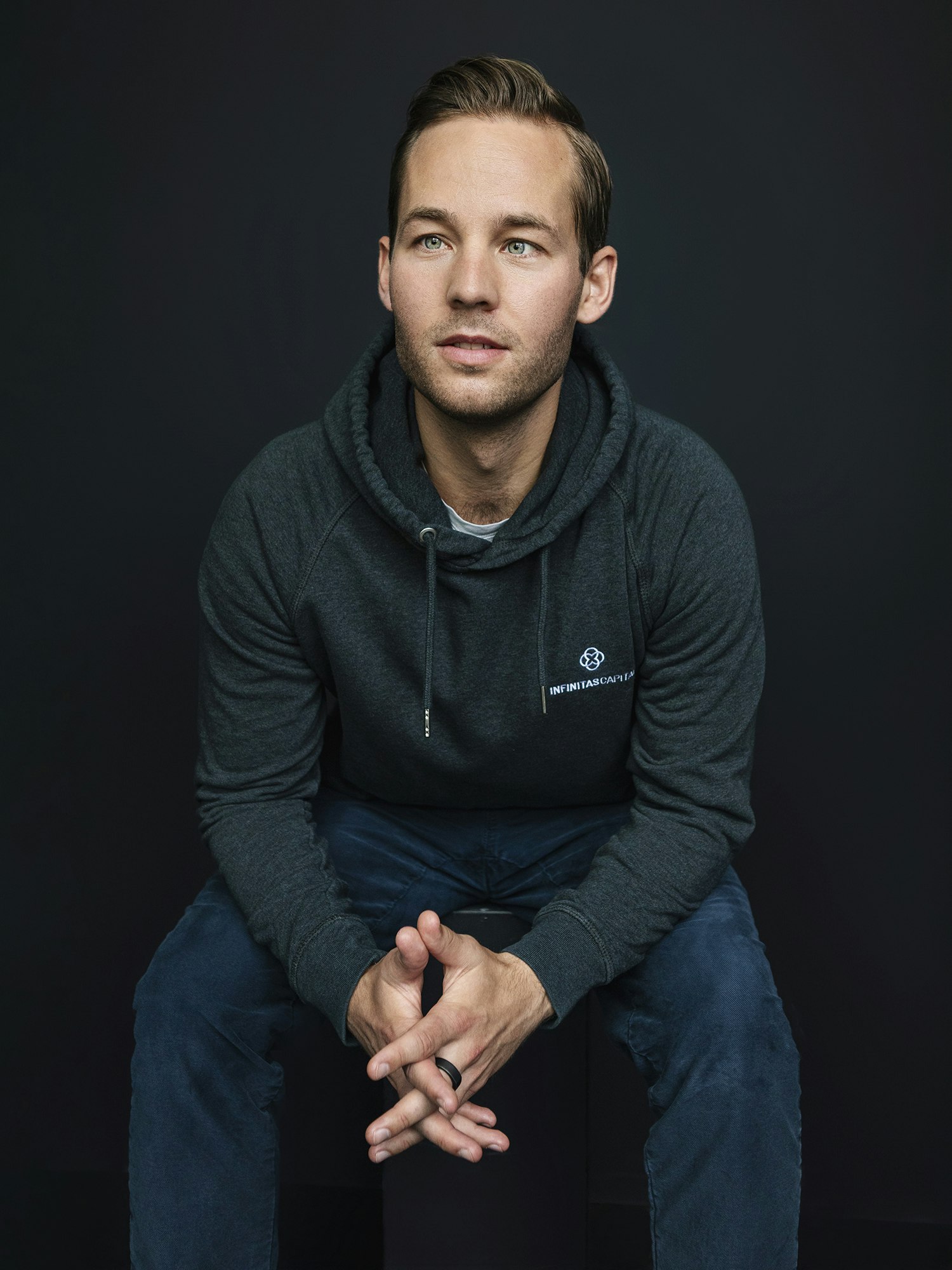It’s often quipped that once you meet one family office… you’ve met one family office.
These investment firms, which manage the wealth of affluent individuals and families, come in all shapes and sizes.
While not all invest in startups or venture capital, they are an important source of capital for founders and VCs. Nearly all VCs who responded to a recent Sifted survey said they have family office and high-net-worth individual LPs. Founders say they can also have advantages over VCs, including being willing to wait longer for returns.
Despite their diversity, family offices fall into some broad categories — and there are basic questions anyone looking for capital should ask them to help sharpen their pitch.
“Founders often think that their idea is unique and anyone not investing with them is mistaken,” says Lex van Dam, founder of Europe’s largest single-family office community, the SFO Alliance.
“It would make more sense to try and understand what the families are actually looking for and their investment style and current portfolio and future needs, and if their venture indeed makes sense from the family's own perspective before even going for the pitch.”
Is it a single or multi-family office?
The first major differences in family offices are between single and multi-family offices. Single family offices (SFOs) manage the wealth of one family, while multi-family offices (MFOs) manage the wealth of multiple families or individuals.
Family officers say that single-family offices usually have wealth in the €100m+ range; enough to make it worth their while to hire staff and set up offices. Multi-family offices can help high-net-worth individuals who have more like €50m in wealth by managing their money alongside that of other families.
Both may invest across assets — from listed equities to private equity or real estate, while others may be focused on only a few kinds of assets. Family offices usually hire investment professionals to help them manage the assets, but family members may also be directly involved in investment decisions.
Who is the gatekeeper or the best first contact?
Miruna-Ioana Girtu, principal at Heritage Holdings, says the SFOs and MFOs merit different approaches, in part due to who the best point of contact is. Heritage Holdings is an investment platform backed by prominent families and entrepreneurs globally.
Founders and GPs looking to raise from SFOs should look for key decision-makers like a head of the family office or principal who is involved in the day-to-day, she says.
MFOs “tend to be more difficult to navigate than SFOs” given they are larger organisations, and founders and GPs need to find out who the relevant person is for them.
Cem Mimaroğlu, a multi-family office VC portfolio manager and builder, says that in Turkey, where there are many family offices, the first point of contact can differ if the family office is a global, sophisticated investor with a dedicated team, or one being managed by wealth managers.
In the case of wealth managers, “they don’t know VC well. For them, it’s risky. So they rely on metrics like profitability or who has invested or who is on the board or on the cap table”, he says, which can make it a harder sell.
He says that startups will likely have more success pitching to a more sophisticated, experienced family office that manages its own wealth.
Denes Ban, a serial entrepreneur and investor who has both advised and raised from family offices, advises GPs or founders to aim for a meeting with the actual owner of the family office and appeal to them by helping them understand which technologies are going to disrupt their business in the future.
He gives the example of pitching family offices with real estate investments mobility deals. “They have to build parking lots. But you have to rethink in 20 years how you use your parking lots because people will use autonomous cars, use less parking etc,” he says. “If you come in as a strategic advisor to the families, you build credibility.”
Is the family office still linked to the source of its wealth?
Some family offices are still very tied to the source of their wealth, others less so. Figure out if the owners of the family office are still involved in the day-to-day management of the business that is the source of their wealth, or are they not involved at all anymore. This can impact whether or not they are looking for investments that could have synergies with their existing businesses.
A great example here is Zaka.VC, which is a family office founded by two entrepreneurs from Slovakia in 2019. One started a major retailer in Slovakia and the other is a serial entrepreneur with experience in numerous industries, from real estate to energy and car dealerships. Zaka.VC invests about €3m a year focused on direct investments in startups, says Andrej Petrus, chief investment officer.

Petrus says that the original motivation for the founders was to “opportunistically find some synergies between their classical business and our investments”, but now is looking to prioritise returns. The firm started investing locally four years ago in the Czech Republic and Slovakia but has since expanded to invest in the DACH region, the UK and the US, doing 46 deals total.
Because the founders of Zaka.VC are still involved with their businesses, they can connect founders they invest in to advisors from the C-suites of the businesses they own, with expertise on everything from e-commerce to mobility and media.
“This is a nice added value of family offices if the owner of the family office also owns the other businesses,” says Petrus.
Robin Lauber, founder of family office Infinitas Capital, connected one of the firm’s US portfolio companies to another European family office with a background in supply chain and production for automotives and electronics. There were “lots of synergies” with the family business of that family office, and it was for the family office a “perfect way to start exploring venture investing”.
What generation is managing the wealth?
Another thing to bear in mind: has the wealth been managed for several generations or is this the first generation in which this wealth has been created? That’s something to find out in a first meeting with the family office.
Infinitas’s Lauber represents the third generation of wealth in his family. The capital was previously mostly invested in Swiss real estate, but Lauber built the family office to invest in venture as well. Infinitas has backed 40 startups since 2017, writing cheques between €200k to €5m.

“Older generations were possessive of their investments and companies in general. We are more collaborative,” he says. “We grew up in a more interconnected world, and see the value and benefit in helping each other and driving each other’s performance,” including introductions for founders to other family offices who might become clients or investors.
Ban says that many “next gen” — the youngest generation in a wealthy family — want to make tech and impact bets. “When you get to them, it’s much easier. They are much more risk-takers. Obviously, you need a risk-taking attitude to do venture compared to other asset classes.”
What kinds of returns is the family office looking for?
Some family offices might be looking for pure financial returns, while others are looking for strategic investments that may be good partners for their main business. Others like to invest in projects that are close to their heart — like climate or mental health. Or their investment strategy can be a mix of all these considerations.
Heritage Holdings’s Girtu says, despite this, family offices are more patient about seeing returns.
“Family offices are particularly attractive investors for companies to engage with because they tend to have a long-term, patient capital mindset, unencumbered by concerns about very near-term results,” she says. “Prioritising short-term results may lead to less-than-ideal long-term outcomes for both companies and investors. Families know this, often because they grew their wealth by owning and operating a growing business in the private space.”
How does the family office work with startups or VCs?
There are also some basic questions that founders should ask family offices about how they work with their portfolios. Some family offices may be very hands-on — especially if they are founded by entrepreneurs who have built their own businesses before.
Zaka.VC’s Petrus cautions that some family offices with multi-asset strategies might not have much expertise in startups, which can cause tensions.
“They will not understand why you should burn some money now and then still raise an additional round and so on, which might create a lot of tension between the founders and their investors in the future,” he says. “And probably, they won't be very helpful to the founder in building the company and connecting it with follow-on investors.”
The SFO Alliance’s van Dam suggests questions like:
- What does your current portfolio look like?
- What is your typical ticket size?
- Tell me about your decision process?
- What does a successful investment look like for you?
- How closely do you get involved with the companies you invest in?


